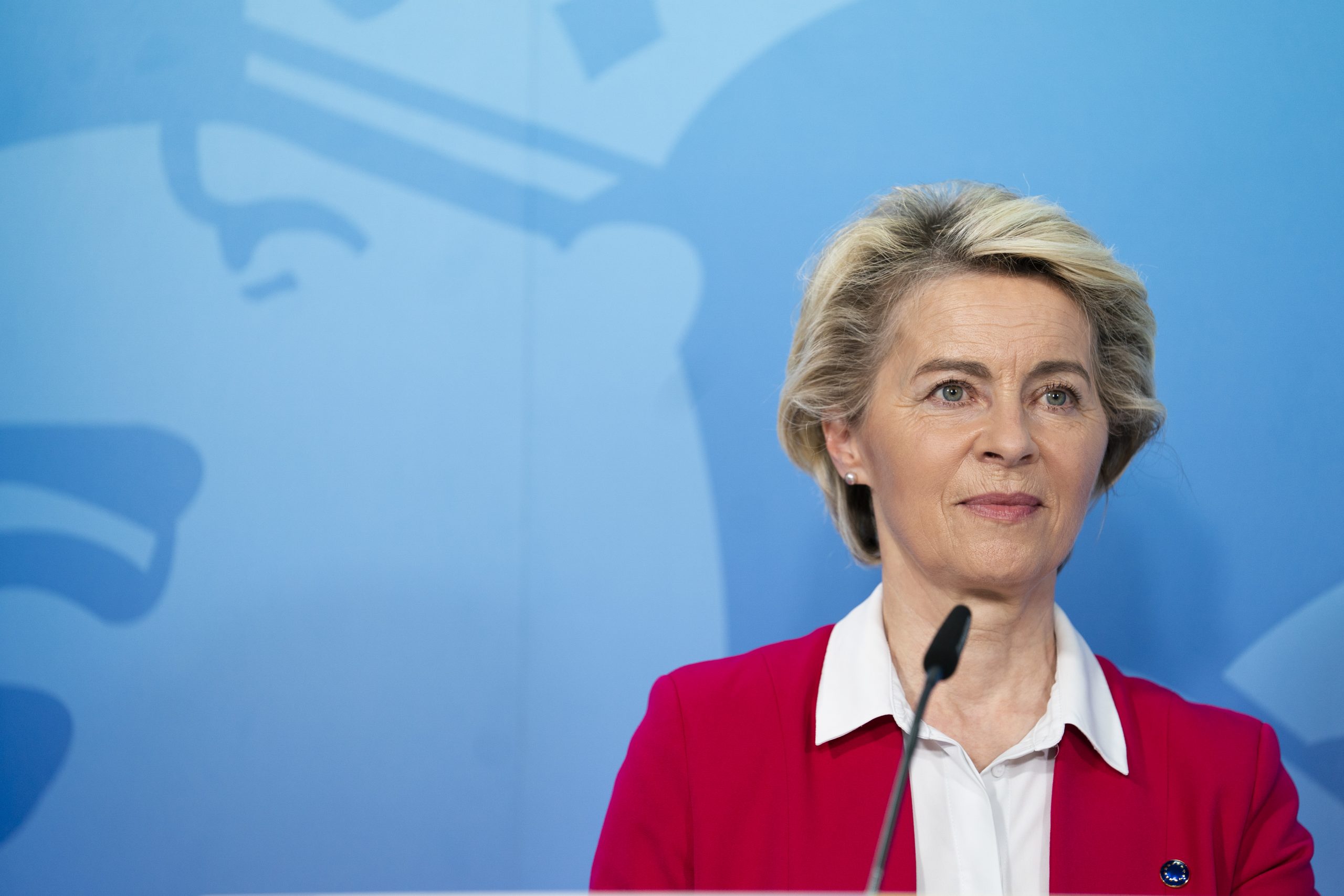Press statement by President von der Leyen ahead of the College discussion with NATO Secretary-General Stoltenberg on Security and Defence
 © European Union, 2021
© European Union, 2021Dear Jens,
I am very happy to have you here with us today for our College seminar at the beginning of the year. Your first visit at our College was in December 2020, in a completely different world. At that time, it was the very first time that a NATO Secretary-General ever came to the College. And it was already a sign of our excellent cooperation.
Since then, our cooperation has only deepened and grown. This is also reflected in the new Joint Declaration that we signed yesterday. Together we are now taking our partnership to a next level. Of course, this happens against the backdrop of an increasing geopolitical competition. We know that our adversaries and our competitors are using all possible tools to challenge us and to undermine our security. They are afraid of our openness, of our transparency, of our democracies. So they will seek to exploit as much as possible these values, our openness, and of course they will try to exploit our interdependencies. That is why it is so important that we stand together and strengthen our resilience overall.
Today, at the College seminar, we will be discussing Russia’s war of aggression against Ukraine. It is now day 322 of the invasion and we will discuss our support to Ukraine – from the humanitarian side, to the economic side, to the security assistance. We will of course also reflect on the consequences for European security. And we will discuss the potential changes that are necessary in our respective policies seeing the backdrop of a security threat in the European Union and the European region. For that, we have for example to boost our defence capabilities in Europe. Because we all know that a stronger European defence will also make NATO stronger.
Since the beginning of Russia’s war, Member States have started to increase their military spending. That is very good. But we do not only need to spend more; but we also need to spend better. This is important to avoid costly fragmentation. It is important to ensure that there is value for money. We need to build interoperable forces, that is the most important part. And, of course, we need to maintain a strong industrial military base in Europe. We do already have the European Defence Fund, which helps develop cutting-edge military technologies. And now we have to make progress on the joint defence procurement, to harmonise that, to have a real common approach to that.
But there is also another topic that we will discuss, that is the threats against our critical infrastructure. One important new focus for our cooperation is the security of our critical infrastructure, where we have to step up the cooperation. We have seen the sabotage of Nord Stream that has shown that we need to be ready and that we need to confront this new type of threats. So today we are launching an EU-NATO Task Force for Resilient Critical Infrastructure. This is a Task Force where our experts from NATO and the European Union will work hand in hand to identify key threats to our critical infrastructure, to look at the strategic vulnerabilities that we do have; then of course also to develop key principles to improve our resilience, and to propose mitigating measures and remedial actions. At the beginning, the Task Force will cover four sectors. That is transport, it is energy, it is digital and space. Of course, we will report our findings back to the Member States or the Allies. By now, if you count in Finland and Sweden, 23 Member States of the 27 in the European Union are also in NATO. It is about information sharing, it is about best practises. Of course, it is about early warning and shared expertise. But we will also discuss other areas of cooperation.
In short, welcome to the College Seminar. I am happy to have you here.
